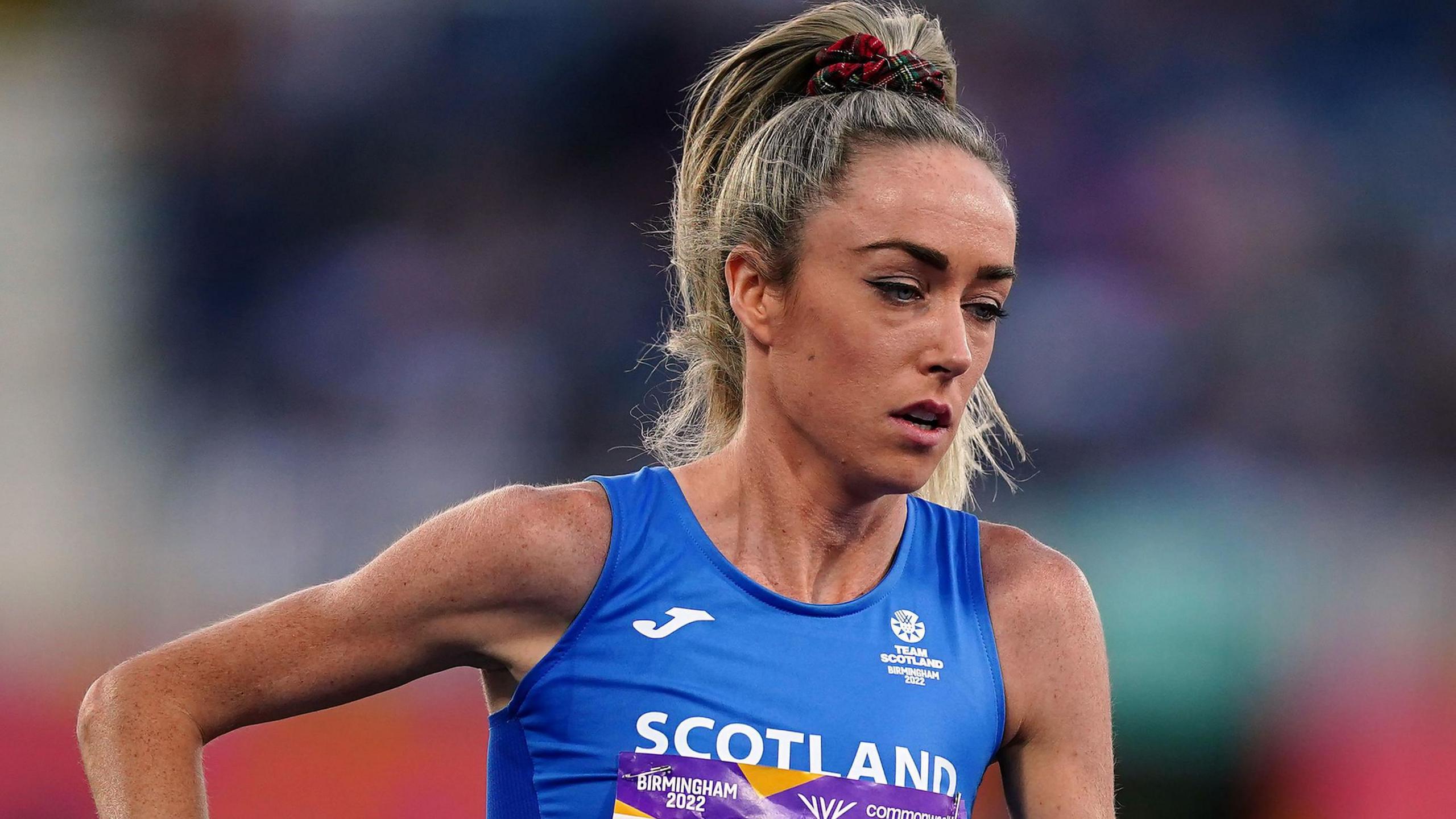McColgan tempers Olympic expectation after injury

Eilish McColgan has had to deal with injury problems and a family bereavement
- Published
Eilish McColgan says she is getting back to her best after injury but admits producing her previous "record-breaking form" at the Olympics will be tough.
The 33-year-old Scot will compete for Team GB at her fourth Games in Paris in Friday's 10,000m.
McColgan had knee surgery at the end of last year and was unable to run for six months, only just making it back in time to qualify.
"It's no secret it's been a really challenging year and a half for me," she told BBC Scotland.
"But I'm coming round now. I'm getting back to the form I showed in previous years."
Today's Olympics guide
- Published10 August 2024
Between 2021 and 2023, McColgan produced the form of her life, becoming Commonwealth champion and setting national records on the track and road from 5,000m up to the half marathon.
But a knee issue that gave McColgan constant pain has derailed her progress and her family also had to deal with the death last year of John Nuttall, the partner of her mum and coach Liz.
After surgery initially failed to get rid of McColgan's discomfort she felt an improvement in the spring and will now compete alongside fellow Scot Megan Keith at Stade de France.
"Trying to compete against the best in the world when you've had six months off - it's going to be a huge challenge," the Dundonian said.
"But I've worked my absolute ass off to be here and I deserve to be on the start line as much as anyone else.
"It's maybe not going to be the record-breaking form I've shown in previous years, but I'm getting down to that again and I'm not too far off where I'd like to be.
"Even just as a family we've been through an awful lot in the last year. Mentally, that's hard to cope with and deal with. That's probably why I'm even more proud.
"Despite all that, we're still battling and made it to the start line. To go to my fourth Olympic Games is a huge honour. To be the first Scot to do that [in athletics] shows how difficult it is."